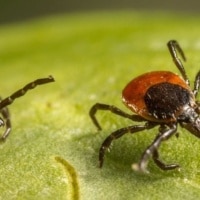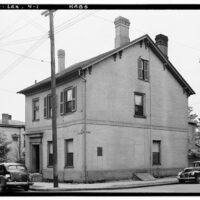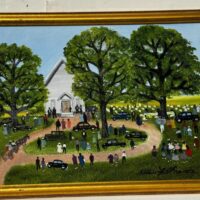Kentucky Governor Andy Beshear confirmed 92 new coronavirus cases and 3 new deaths from COVID-19 in his Saturday statewide update.

(Facebook screenshot)
Of the new cases reported to state authorities, 13 are in western Kentucky counties: five from Hopkins County, three from Christian County, one from Henderson County, one from Lyon County, and one from Webster County.
The Commonwealth now has 917 total cases of the coronavirus. 76 people are currently hospitalized. Beshear confirmed the state has administered 16,663 coronavirus tests.
Eric Friedlander represents the Kentucky Cabinet for Health and Family Services. He advised listeners on how to apply Medicaid after recent modifications have been made. The once 20-page application for Medicaid has been reduced down to a single page, and anyone who doesn’t have healthcare and applies will be insured until June.
The application can be found under the services page at kycovid19.ky.gov. Friedlander also said there are other resources available, including for the Supplemental Nutrition Assistance Program (SNAP).
“There are other sites and numbers to call if you need help with food or buying groceries. That’s what SNAP is about,” Friedlander said.
He said calls regarding SNAP can be answered Monday through Friday from 8 a.m. EST to 5 p.m. EST, and 9 a.m. EST through 2 p.m. EST on Saturdays.
For immediate food needs, Friedlander said individuals can call 211, for a service provided by the United Way to help people find local food banks.
Beshear also shared the Center for Disease Control and Prevention’s recent adviceon facemask protocol.
“The CDC is now advised that wearing a cloth face mask may help reduce the spread of COVID-19. So, if you were going to the grocery store and you can’t control how many people are in there, that’s one of the times that they’re suggesting wearing the mask,” Beshear said.
The governor explained according to the CDC, the masks prevent droplets from sneezing or coughing from spreading toward anyone else. Beshear also warned wearing a facemask could lead to an increase in an individual touching their face in public.
“So wearing a cloth mask in public, when it is more difficult to maintain a safe distance, may help reduce the risk of it spreading,” Beshear said. “However, if you’ve got a cloth face mask on and you’re moving it around a bunch, it’s not helping you. It’s actually hurting you based on everything you would be touching in a grocery store or anything else.”
Beshear asked the general public to only wear cloth masks and leave more advanced surgical masks and N-95 masks for healthcare providers. He said facemasks are a voluntary public health measure for Kentucky, although the guidance does come from the CDC.
In preparation for the expected upcoming surge of hospitalizations, the state is working on increasing their health care capacity. This includes getting more personal protective equipment (PPE), a task that is becoming more difficult, according to Beshear.
“Everytime we expect an order of PPE, it doesn’t come. Certainly, the N-95 masks don’t come. Either the vendor who was supposed to be sending it to us will tell us the federal government bought it, typically FEMA,” Beshear said. “Now the challenge that we have is that we don’t have direct producers of this In Kentucky, so we have to get it in. A lot of this right now is coming from overseas, and it never makes it past that port of entry to come our direction. Instead, it’s diverted elsewhere.”
Donations for PPE can be dropped off at any Kentucky State Police post, or given at giveppe.ky.gov
Beshear also responded to reports the pastor of Maryville Baptist Church in Maryville, Kentucky, was going to defy the state ban on mass gatherings to hold services.
“If you are still holding mass gatherings, church or otherwise, you are spreading the coronavirus and you are likely causing the death of Kentuckians. It is that clear,” Beshear said.
During the press conference, Beshear shared a graph of community mitigation goals from the CDC. Lines on the graph represented the consequences in terms of statewide deaths of different courses of action, including the scenario of a three-month stay at home with poor compliance, and a three-month stay at home with strict compliance.
Beshear said Kentucky is currently operating under strict compliance, with the exception of organizations like Maryville Baptist Church.
“If this pastor wants to still hold a live service, I mean, folks, that’s how people die. That’s how we go from strict compliance to the poor compliance,” Beshear said.
Beshear said his goal is to keep the commonwealth operating under strict compliance. According to the CDC graph, the difference between poor compliance and strict compliance represents about 11,000 Kentucky deaths.
“This is our chance to be a great generation and to pass our test of humanity. This is our chance to say we care more about the health of other people than our economic certainty at this moment,” Beshear said.






